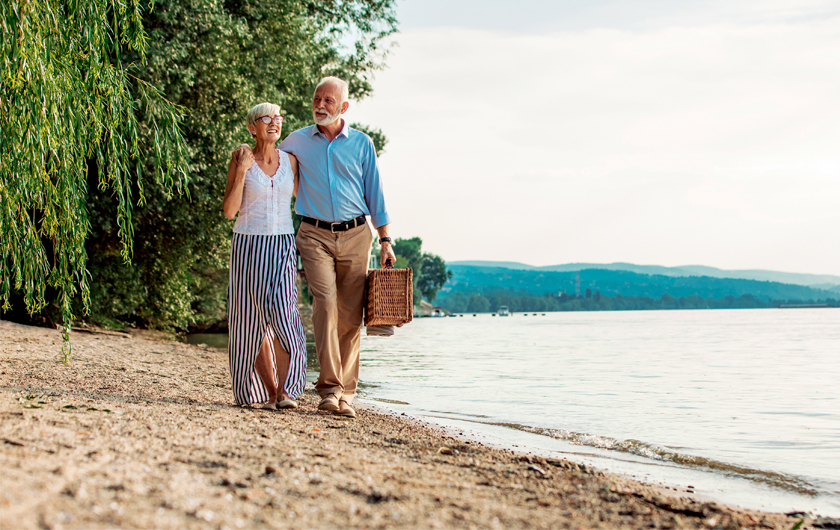The move could make retirement more affordable, but you need to do a lot of research before you start packing
By Okey Chigbo
Photo:bernardbodo.
About three million Canadians live in foreign countries for employment, business, and other reasons. Many are retirees choosing to live outside our borders because they seek warmer weather or a lower cost of living that helps retirement income go further. Affordability is one of the biggest reasons why people choose to retire abroad.
Margit Streifeneder, a native of Germany who now lives in Managua, Nicaragua, is the founder of RetirePedia.com, a resource website for people who want to retire abroad. She believes everyone can benefit from retiring outside North America. Besides “widening your horizons,” she lists such benefits as having access to quality health care at a lower cost than back home. “By quality I don’t mean just the doctor’s training and skills,” she says, “but also that he or she takes time to talk to you and sees you as a human being, not just another patient.” She adds that retirees often live a healthier lifestyle after retiring abroad because they walk more and eat more fruits and vegetables.
Where To?
If you’re thinking about retiring abroad, how do you determine the best destination for you? What key questions do you ask when looking for an affordable retirement in a foreign country?
“Everybody asks the same questions,” says Tom Dawson, a Canadian from St. Albert, AB, who has retired to Panama City, Panama, and has a website called WhyPanama (whypanama.net). “Is it safe? Do I have access to decent health care? Will assets that I purchase be safe from government or other people? Will I live in an environment that’s comfortable? Do I need to know the local language?”
The Government of Canada booklet Living Abroad: A Canadian’s guide to working, studying, volunteering or retiring in a foreign country (available from canada.ca as a PDF) adds and answers such questions as, “Who can I contact for emergency help? Can the Government of Canada get me out of jail in this country?”
Safety and security are major concerns for anyone hoping to live in a foreign country, especially one that doesn’t rank high on quality-of-life indices published by organizations such as the international Organization for Economic Co-operation and Development.
The authors of Living Abroad recommend a complete risk assessment of the political, economic, cultural, and natural environment. What’s the recent history of the country you’ve selected with regard to crime, riots, and wars? You should consult Canadian government advisories at travel.gc.ca/travelling/advisories.
While conducting such research, however, you should be aware that some countries may seem terrifying places to visit—let alone to live in—if you go by media stories or even government advisories. Some of these research tools can be very blunt instruments. The truth is that much of the violence and crime associated with some countries may be restricted to particular regions and may not be a widespread phenomenon at all.
A typical example is Mexico, a place associated in the minds of many North Americans with dangerous drug cartels and drug-related killings. But Mexico is listed by a number of retirement-abroad guides as one of the better places to retire inexpensively and well, and many Americans and Canadians do in fact retire to Mexico. For example, before changing their minds and moving to Panama (a country with top-notch infrastructure due to the 100-year US presence), Dawson and his wife, Donna, were seriously considering Mexico, a country they had visited on and off for 20 years and found had “ticked many boxes” for them.
So what’s the story here? The blog WeExpats (weexpats.com) answers the question “Is living in Mexico safe?” in this way: “What if we flipped the question around and asked, ‘Is it safe to live in the United States?’ You would likely answer something like, ‘Oh, well, it depends on where.’ This is no different in Mexico. A state like Quintana Roo (which is so massive a state that it takes five hours to cross) has roughly the same murder rate as that of Central Florida, though many of these are [the result of] arguments between people or domestic disputes that are not the result of gunfire violence [as is the case in Central Florida].”
There may be differences in steps taken for safety in various countries, however. Streifeneder makes her home in Managua in a gated community with 24/7 security, something she says she wouldn’t do in her native Germany because break-ins and robberies are more common in Nicaragua. “Does that mean I feel unsafe? No. It’s simply a different way of living.”
It helps to speak to people who have been to the country you have in mind, or who are living there. If you can’t, there are several online sites and blogs that provide guidance about safety, such as the World’s Cheapest and Safest Places to Retire blog on Investopedia (investopedia.com). You can also look at forums such as ExpatExchange (expatexchange.com/retire) and Facebook groups.
Streifeneder lists eight criteria that a person thinking of retirement abroad must consider: cost of living, climate, health care, safety and political stability, infrastructure (roads, airports, and Internet access), housing and real estate, visa and residency requirements, and culture and recreational possibilities.
“I would suggest starting by reviewing the list and sorting the criteria according to what’s most important to you,” she says. “If a warm climate all year-round tops your list, then you need to look at tropical countries.”
Cost of Living
After you’ve picked a city, it’s a good idea to compare the cost of living in your home city to that in the city you’ve chosen abroad. A number of websites can help with this, the most popular of which are Numbeo (numbeo.com) and Expatistan (expatistan.com). At the time of writing, Numbeo reported that consumer prices were 34 per cent lower in Panama City than in Toronto, that rents were 41.53 per cent lower in Panama City, and that you would need about CDN$4,499 a month to maintain the same standard of living that $6,900 would get you in Toronto. Expatistan, however, reported that the cost of living was 19 per cent cheaper in Panama City than in Toronto, rather than Numbeo’s 34 per cent.
WhyPanama’s Tom Dawson cautions against such broad comparisons and says that when you ask questions about cost of living comparisons, answers can be “all over the map.
“It depends on where you live. In Panama City, your rent could be $150 a month, but a few miles north of where we live, it could be $80. Overall, costs in Panama City are comparable to what you may get in a small town in Canada, but when you move out of the city, there’s no way the costs are comparable to what you might get outside that town in Canada. Rent in those small communities for a house is about $200 a month. We live in a 1,700-square-foot condo that’s in the $200 to $250 range. In Calgary, you’re not going to get a condo with an ocean view.”
Streifeneder’s research finds that the most affordable countries to retire to are Nicaragua, Ecuador, Panama, Malaysia, and Thailand. These are countries where you can live on a monthly budget of US$1,200 to US$1,400 (about $1,600 to $1,900 in Canadian funds).
When you’ve decided on a place, you should spend some time there before packing up to go. Streifeneder suggests at least three months to get a good feel for whether you want to live there. Others suggest multiple visits to find out as much as you can.
Dawson advises spending time in the area’s rainy season as well as the dry season; it’s important to experience the country in both weather extremes, otherwise you might be like someone who moves to Toronto from the tropics with no experience living in -25-degree winter weather.
Some experts suggest that the best way to fully get the benefits of a foreign retirement destination is to learn the local language and live as much as possible like the natives, especially outside the big cities and away from tourist traps.
Regarding health and health insurance, most reports suggest that many foreign retirement havens have good to excellent health care at very reasonable costs. For many places, you’ll need to buy health insurance only for major health problems that may keep you in hospital for extended periods. Regular visits to the doctor and dentist don’t cost much.
The key to retiring successfully to a foreign destination, Dawson says, is to recognize that you aren’t in Canada and things can’t be exactly as they were for you back home. If you keep this in mind, you’ll be okay.





